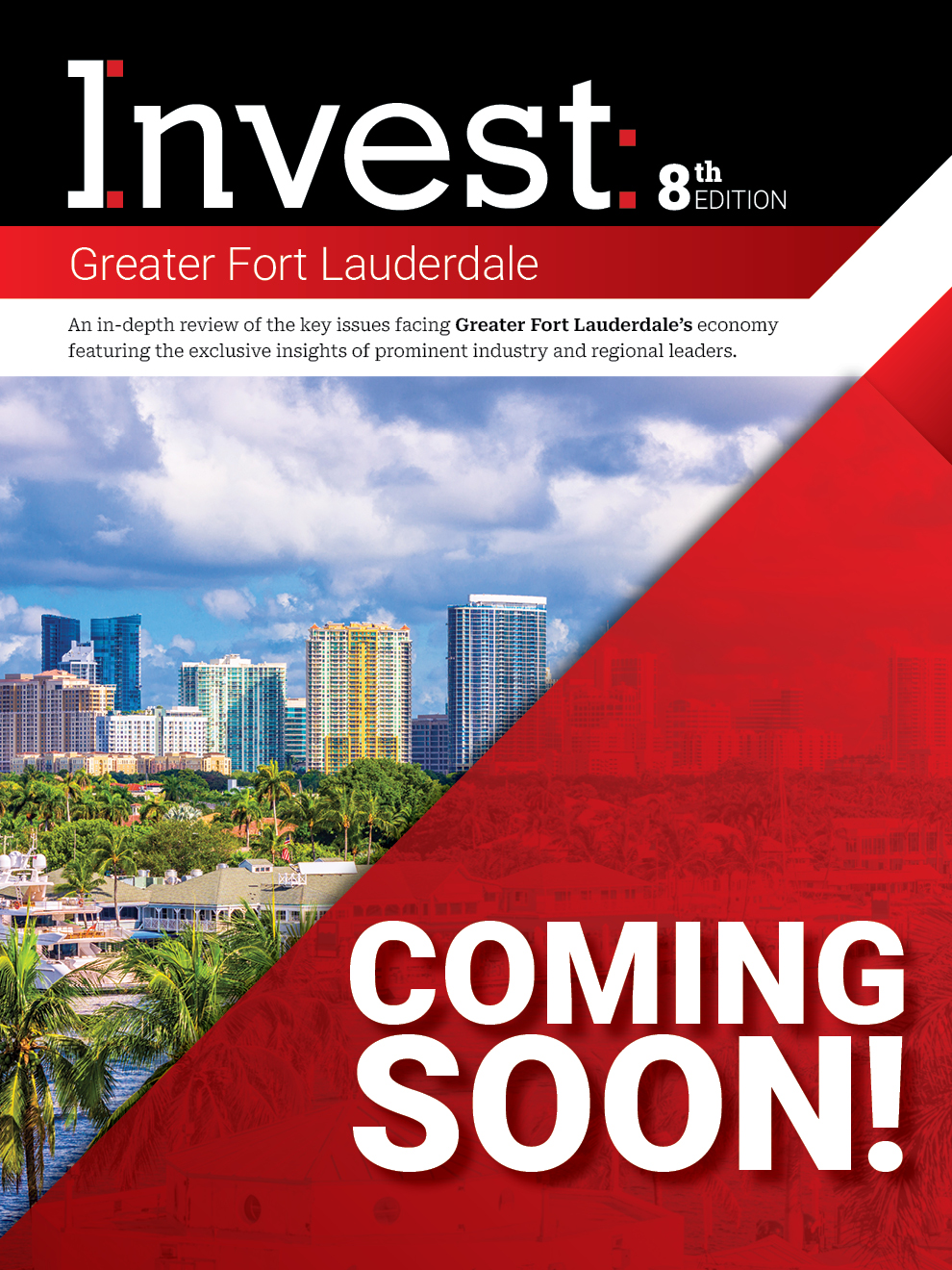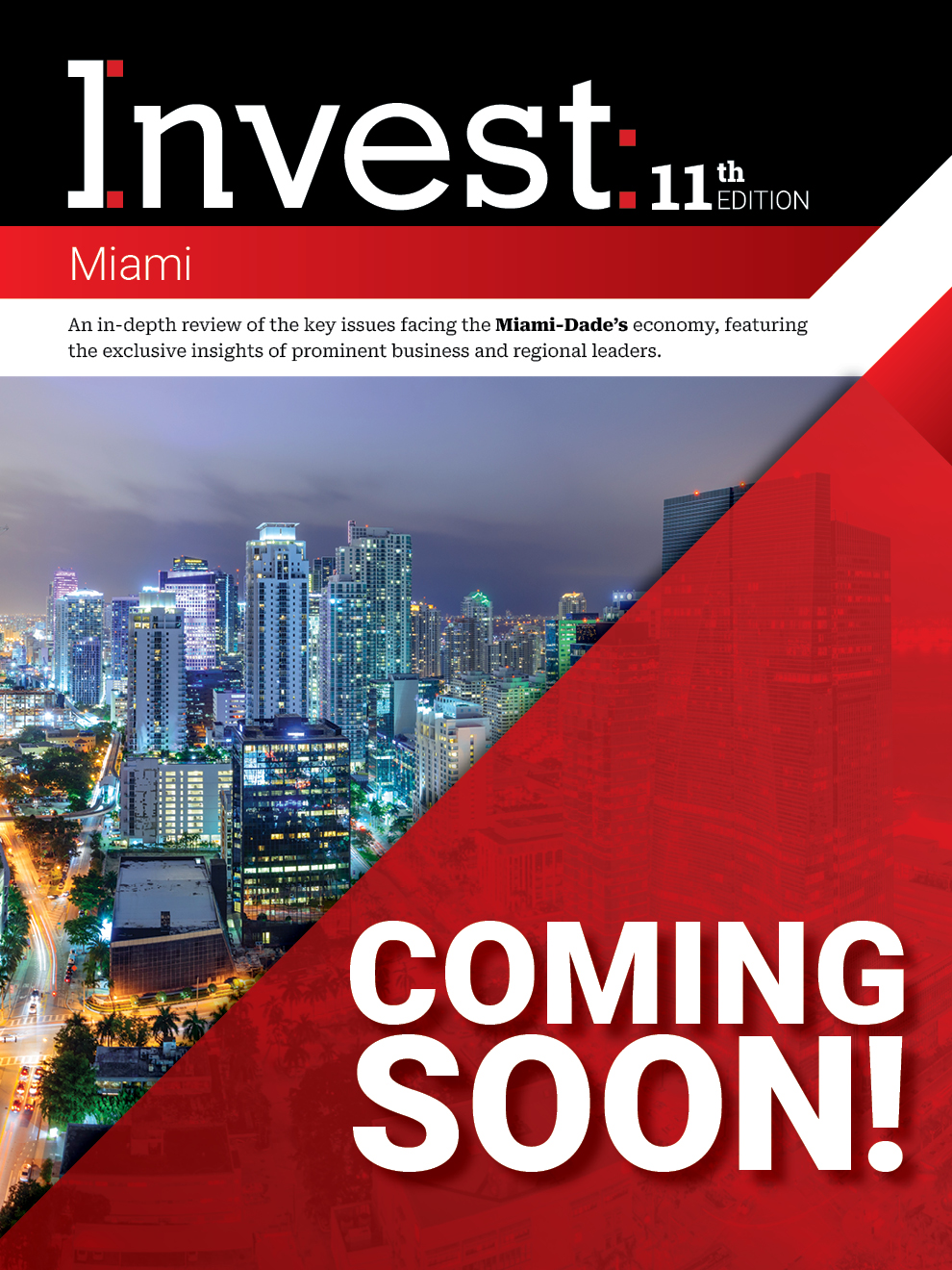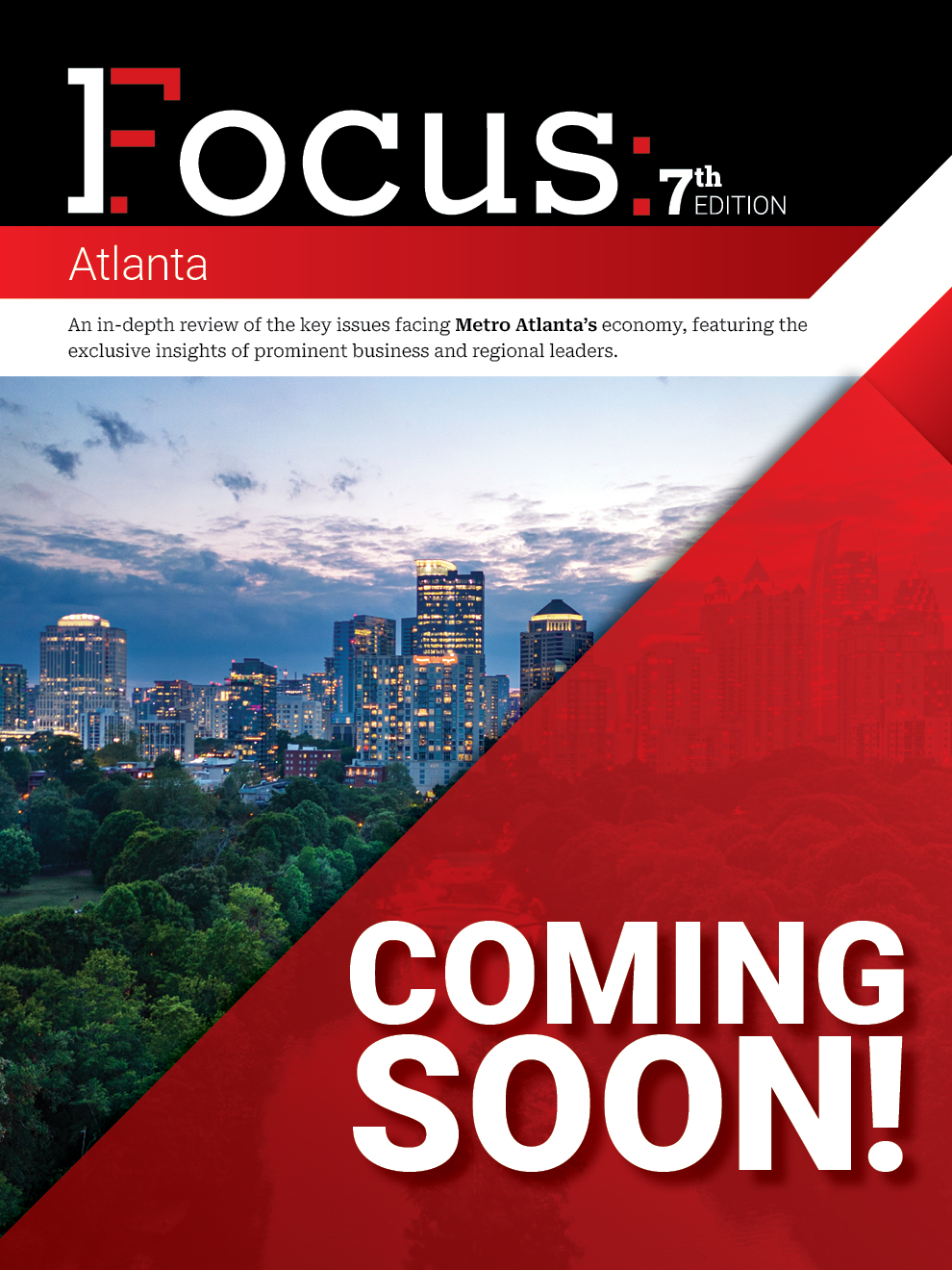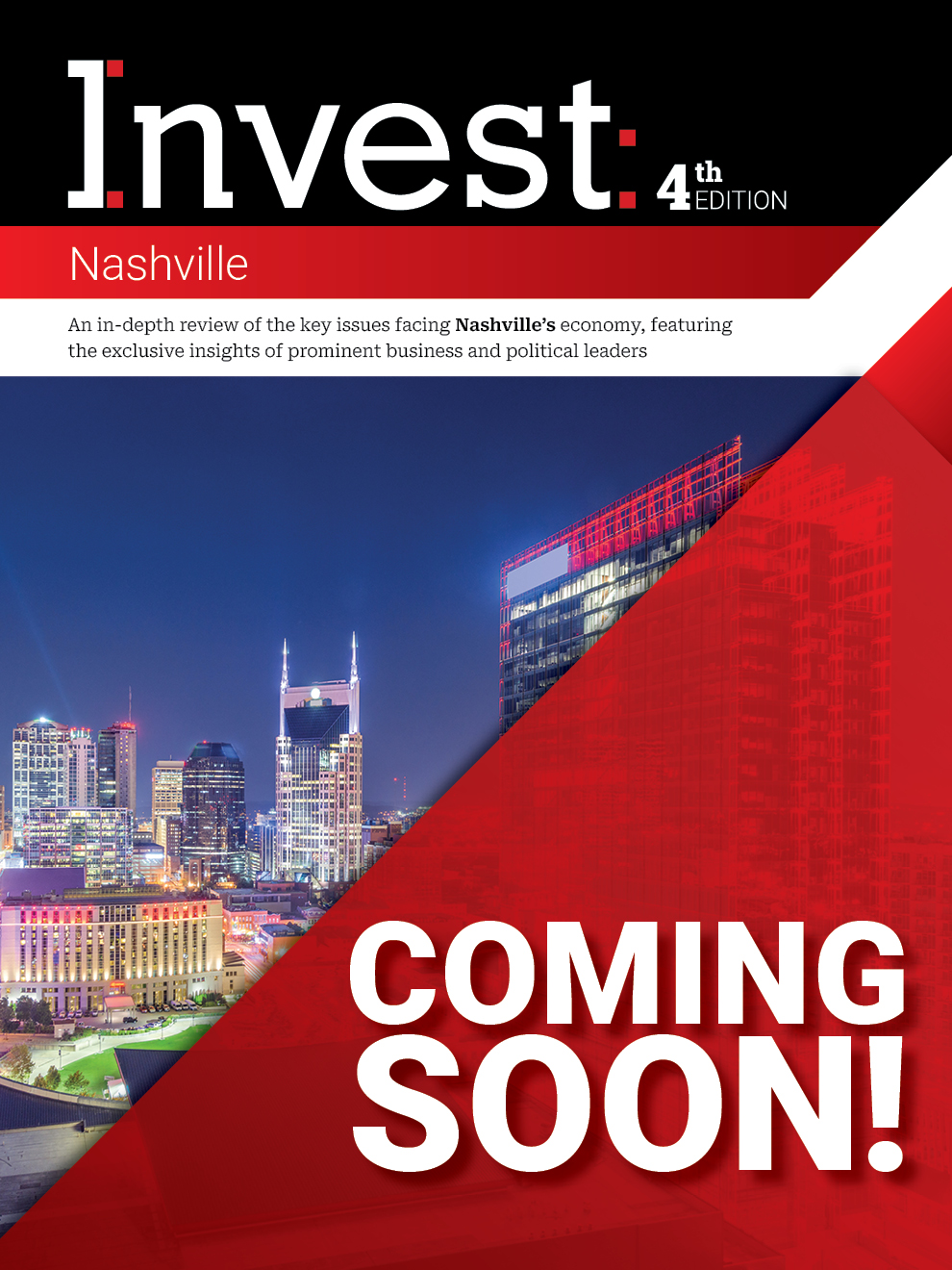Writer: Ryan Gandolfo
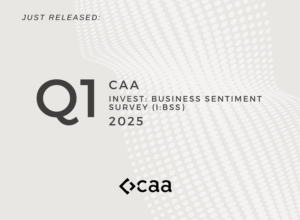
April 2025 — U.S. business sentiment remained stable in the first quarter of 2025 as leaders identified strong organizational performance while expressing caution amid growing uncertainty over tariffs and taxes, according to a new survey by caa.
Following President Donald Trump’s inauguration and early signals of tariff and tax changes, leaders are trying to determine their next move.
“The biggest anxiety for our members is the uncertainty around tariffs and taxation,” a Philadelphia-based global trade executive told Invest:. “The ongoing conversation around tariffs is the main source of concern, but most companies continue with business as usual unless told otherwise.”
Since retaking the White House, Trump has embarked on an ever-shifting policy of on-again, off-again tariffs against a host of countries, including key trade allies Canada and Mexico as well as the European Union and China, rattling equity and bond markets.
Despite that uncertainty, overall sentiment remained strong across regions last quarter. In the January-March Invest: Business Sentiment Survey (I:BSS) of public and private sector leaders in markets covered by caa’s annual economic reports, respondents, on average, ranked the strength of their regional economy 4.03 out of 5 (5 being the highest). The new figure represents little change from the previous quarter.
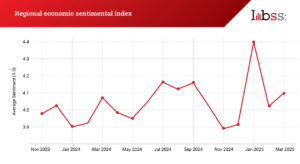
Southern market leaders held more favorable views in the quarter, with 84% of respondents ranking their area economy 4 or 5, while 69% of Northern market leaders shared the same positive sentiment.

In real estate, leaders are expressing a more stable environment five years removed from the COVID pandemic. “We’re feeling optimistic,” said a real estate industry executive based in the Twin Cities. “It seems that most companies have found their “new normal” on what kind of footprints they need, and many of the big blocks of sublease space are converting back to direct vacancy, so a lot of the COVID-era uncertainty is dissipating.”
In terms of organizational performance, both Northern and Southern market leaders held highly positive views, with 92% and 85%, respectively, ranking their performance over the past six months at 4 or higher.

Many companies attribute their strong performance to streamlined operations. “We differentiate ourselves through our focus on seeking out efficiencies in the delivery of legal excellence,” said a Houston-based partner at a Top 100 global law firm. “The fact is that legal services cost companies money. We try to help mitigate this by trying to find ways to provide those legal services in a more efficient, collaborative way with our clients, with a focus on technology.”
Despite strong business performance, labor market enthusiasm dipped slightly as decision-makers showed lower interest in hiring compared to the previous quarter. In Southern markets, 72% of survey respondents rank hiring expectations over the next six months at 4 or higher, compared to 61% in Northern markets. The average likelihood of hiring in the coming six months was 4.1 in Southern markets and 3.6 in Northern markets.
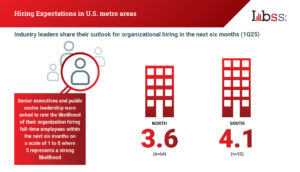
Nationally, the number of job openings has shown little movement: the U.S. Bureau of Labor Statistics reported 7.6 million job openings in February 2025, indicating a slowing but healthy job market.
While the hiring outlook remains mixed, leaders are more aligned on local government support. More than half (58%) of leaders put local government support for business growth in their region at 4 or 5. Unlike recent quarters, Northern and Southern respondents were mostly aligned, with 55% and 60% holding favorable views, respectively.

Housing costs remain a concern in most markets, driven in part by local regulations. “Homes are expensive due to several factors, including government regulations, which add costs. In Georgia, approximately 28% of a home’s price comes from fees and regulatory expenses,” a real estate association executive told Invest:.
As the second quarter gets underway, leaders are approaching growth with caution. Despite concerns over tariffs and a significant downturn in financial markets in the first week of April, strong internal performance and steady regional economies are keeping overall sentiment in positive territory.
“[We] have been proactive in positioning ourselves to stay ahead of [industry] shifts,” said a Tennessee-based construction leader. “We are continuously dealing with changes associated with tariffs.”
For more I:BSS reports, click here.

